Marxists Internet Archive Library of Feminist Writers
| Selected writings of feminists of each of the “three waves” of feminist political activity. Intellectual Property laws prevent the Marxists Internet Archive from reproducing the works of most of the major feminist writers of recent decades. However, key chapters and articles have been reproduced for educaitonal purposes only. |
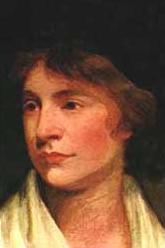
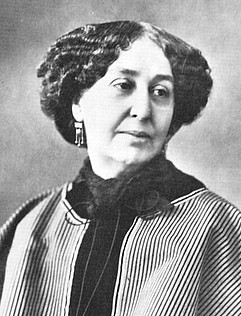
The First Feminists (Classical Liberalism) | ||
|
(1759-1797) English radical who was the first woman to systematically enquire into the causes of women's oppression. [Full Biography] |
(1856-1915) Friend of John Stuart Mill, and her work was published under his name, one of the earliest arguments for the emancipation of women, in the tradition of classical liberalism. [Full Biography] | |

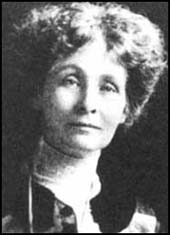
Feminism and Social Democracy | ||
 (1857-1933)
(1857-1933) Union leader in Germany at a time when membership of unions was illegal for women, a leader of the Second International and founding member of the German Communist Party. [Full Biography] (1855-1898) Daughter of Karl Marx, took up the fight against the rampant sexism within Social Democracy. [Full Biography] (1851-1933) British Marxist and feminist, Suffragette and founding member of British Communist Party. [Full Biography] (1855-1920) South African-born, British socialist and novellist. [Full Biography] |
(1862-1950) American socialist and union organiser. [Full Biography] (1869-1949) Australian suffragette, feminist and anti-militarist. [Full Biography] (1876-1958) American socialist and historian. [Full Biography] (1873-1952) Leading member of the Bolshevik Party who led the Russian Revolution, and a member of the Workers' Opposition. [Full Biography] (1882-1960) Daughter of Emmeline, along with her sister Adela fighter for women's suffrage and socialism. Sylvia was a Left Communist. [Full Biography] | |
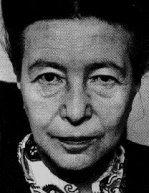
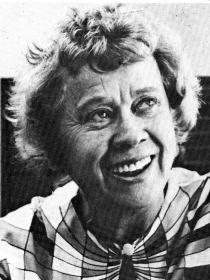
| ||
(1905-1979)  Member of the American Trotskyist movement, socialist feminist, was one of the first to challenge anthropological and other spurious justifications for patriarchy. [Full Biography] |
(1908-1986)  Author of The Second Sex, the most significant review of approaches to the critique of women's role in history and modern society. De Beauvoir was an Existentialist. [Full Biography] | |
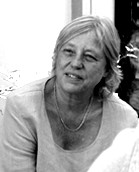
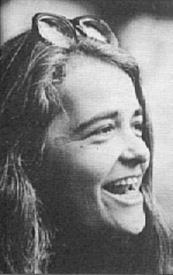
| ||
|
(1921-2006) Psychologist, a student of Kurt Koffka, who criticised Freudian psychoanalysis for its rationalisation of sexist attitudes; exposed the deep crisis affecting American housewives, excluded from the workforce and confined to housework. [Full Biography] (1923-1998) Socialist-feminist, founder of Freedom Socialist Party in Seattle.  (1934-)
(1934-) Radical Feminist, who argued for the expansion of the conceptions of historical materialism to include the processes of domestic labour and reproduction. May have coined the word “sexism.” [Full Biography] (1939-) Australian Radical Feminist [Full Biography] (1940-) New Zealand-born, British feminist who endeavoured to reconcile feminism with psychoanalysis. [Full Biography] (1941-) American Socialist feminist and journalist. [Full Biography] (1943-) British socialist feminist; wrote for the Trotskyist ‘Black Dwarf’ before publishing ‘Women’s Liberation and the New Politics’ arguing that women were oppressed in cultural as well as economic terms. A pioneer of women’s history. [Full Biography] (1944-) A member of the CPUSA for some time, Davis is a supporter of Cuba and an active campaigner for radical alternatives to prison. Her criticisms of the exclusive focus of the modern women's movement on the concerns of middle-class white women was influential. [Full Biography] ( ) |
(1945-) Radical feminist who argued that the concept of class should be expanded to encompass the notion of women as a sex-class, and thus utilise the ideas of Marxism and class struggle to understand the nature of women's oppression. [Full Biography] ( ) Socialist Feminist who argued both against the overreaction of feminists against socialism and the antipathy of socialists to feminism. (1943- ) Historian who has contributed to uncovering the role of women in history, and analysed the historical development of the women's movement itself. [Full Biography] (1947-) Australian Marxist and feminist, worked at the Working Women's Centre at the ACTU and researched the socialisation of women's labour. ( ) Argentinian Marxist Feminist [Marxist Feminism site] ( ) Argues for a feminism based on historical materialism, against the postmodern feminism of people like Judith Butler, which she calls “ludic feminism.” [Terea Ebert home page] ( ) Historian who has contributed to uncovering the role of women in history, and analysed the historical development of the women's movement itself. [Full Biography] (1950- ) Turkish feminist, social philosopher and Critical Theorist. [Home Page] ( ) American “Ethical feminist,” professor of political science, women's studies, and comparative literature at Rutgers University. [Feminist Theory Website] | |
|
Writers are listed by (birth-death) years. Large type indicates writers who are most often cited and | ||
(The “waves” are not defined in the same way as we have chosen to periodise the women's movement. The conventional numbering does not recognise the educated women of the late 18th/early 19th century, part of classical liberalism, as a distinct movement from the later movements which were connected to social democracy. The “third wave” refers to feminists of the 1990s and after who recognised the way in which earlier feminism had been blind to the femininity of Blacks, working class and other women, and developed a much more general, reflexive analysis of status subordination.)